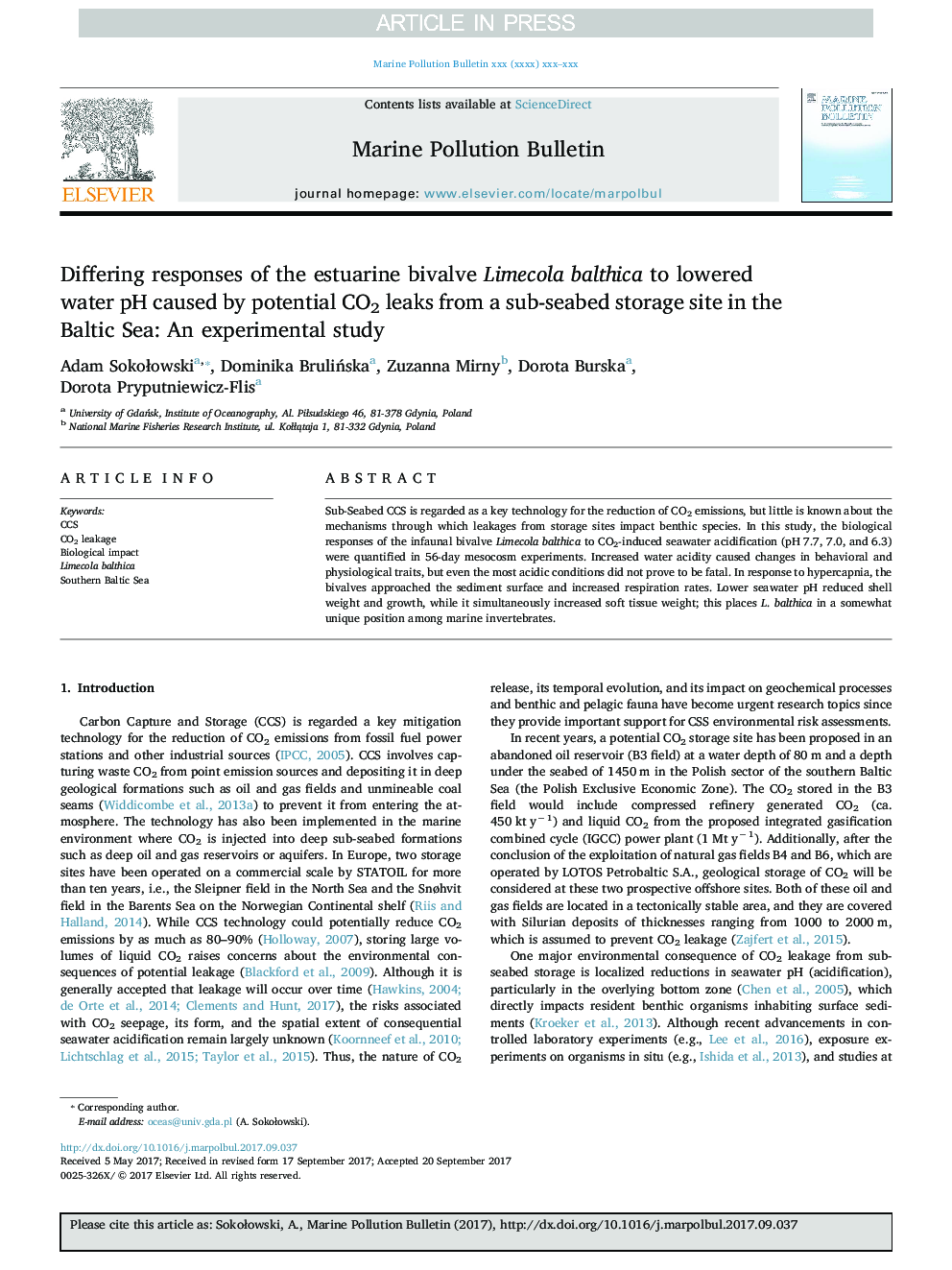| Article ID | Journal | Published Year | Pages | File Type |
|---|---|---|---|---|
| 8871749 | Marine Pollution Bulletin | 2018 | 13 Pages |
Abstract
Sub-Seabed CCS is regarded as a key technology for the reduction of CO2 emissions, but little is known about the mechanisms through which leakages from storage sites impact benthic species. In this study, the biological responses of the infaunal bivalve Limecola balthica to CO2-induced seawater acidification (pHÂ 7.7, 7.0, and 6.3) were quantified in 56-day mesocosm experiments. Increased water acidity caused changes in behavioral and physiological traits, but even the most acidic conditions did not prove to be fatal. In response to hypercapnia, the bivalves approached the sediment surface and increased respiration rates. Lower seawater pH reduced shell weight and growth, while it simultaneously increased soft tissue weight; this places L. balthica in a somewhat unique position among marine invertebrates.
Related Topics
Physical Sciences and Engineering
Earth and Planetary Sciences
Oceanography
Authors
Adam SokoÅowski, Dominika BruliÅska, Zuzanna Mirny, Dorota Burska, Dorota Pryputniewicz-Flis,
